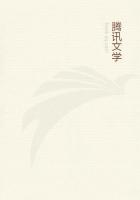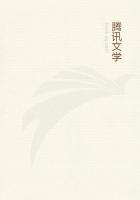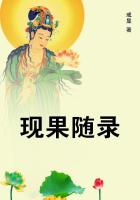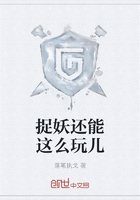Acts just and unjust being as we have described them, a man acts unjustly or justly whenever he does such acts voluntarily; when involuntarily, he acts neither unjustly nor justly except in an incidental way; for he does things which happen to be just or unjust. Whether an act is or is not one of injustice (or of justice)is determined by its voluntariness or involuntariness; for when it is voluntary it is blamed, and at the same time is then an act of injustice; so that there will be things that are unjust but not yet acts of injustice, if voluntariness be not present as well. By the voluntary I mean, as has been said before, any of the things in a man's own power which he does with knowledge, i.e. not in ignorance either of the person acted on or of the instrument used or of the end that will be attained (e.g. whom he is striking, with what, and to what end), each such act being done not incidentally nor under compulsion (e.g. if A takes B's hand and therewith strikes C, B does not act voluntarily; for the act was not in his own power). The person struck may be the striker's father, and the striker may know that it is a man or one of the persons present, but not know that it is his father; a similar distinction may be made in the case of the end, and with regard to the whole action. Therefore that which is done in ignorance, or though not done in ignorance is not in the agent's power, or is done under compulsion, is involuntary (for many natural processes, even, we knowingly both perform and experience, none of which is either voluntary or involuntary; e.g. growing old or dying). But in the case of unjust and just acts alike the injustice or justice may be only incidental; for a man might return a deposit unwillingly and from fear, and then he must not be said either to do what is just or to act justly, except in an incidental way.
Similarly the man who under compulsion and unwillingly fails to return the deposit must be said to act unjustly, and to do what is unjust, only incidentally. Of voluntary acts we do some by choice, others not by choice; by choice those which we do after deliberation, not by choice those which we do without previous deliberation. Thus there are three kinds of injury in transactions between man and man;those done in ignorance are mistakes when the person acted on, the act, the instrument, or the end that will be attained is other than the agent supposed; the agent thought either that he was not hiting any one or that he was not hitting with this missile or not hitting this person or to this end, but a result followed other than that which he thought likely (e.g. he threw not with intent to wound but only to prick), or the person hit or the missile was other than he supposed. Now when (1) the injury takes place contrary to reasonable expectation, it is a misadventure. When (2) it is not contrary to reasonable expectation, but does not imply vice, it is a mistake (for a man makes a mistake when the fault originates in him, but is the victim of accident when the origin lies outside him). When (3)he acts with knowledge but not after deliberation, it is an act of injustice-e.g. the acts due to anger or to other passions necessary or natural to man; for when men do such harmful and mistaken acts they act unjustly, and the acts are acts of injustice, but this does not imply that the doers are unjust or wicked; for the injury is not due to vice. But when (4) a man acts from choice, he is an unjust man and a vicious man.
Hence acts proceeding from anger are rightly judged not to be done of malice aforethought; for it is not the man who acts in anger but he who enraged him that starts the mischief. Again, the matter in dispute is not whether the thing happened or not, but its justice; for it is apparent injustice that occasions rage. For they do not dispute about the occurrence of the act-as in commercial transactions where one of the two parties must be vicious-unless they do so owing to forgetfulness; but, agreeing about the fact, they dispute on which side justice lies (whereas a man who has deliberately injured another cannot help knowing that he has done so), so that the one thinks he is being treated unjustly and the other disagrees.
But if a man harms another by choice, he acts unjustly; and these are the acts of injustice which imply that the doer is an unjust man, provided that the act violates proportion or equality. Similarly, a man is just when he acts justly by choice; but he acts justly if he merely acts voluntarily.
Of involuntary acts some are excusable, others not. For the mistakes which men make not only in ignorance but also from ignorance are excusable, while those which men do not from ignorance but (though they do them in ignorance) owing to a passion which is neither natural nor such as man is liable to, are not excusable.
9
Assuming that we have sufficiently defined the suffering and doing of injustice, it may be asked (1) whether the truth in expressed in Euripides' paradoxical words:
I slew my mother, that's my tale in brief.
Were you both willing, or unwilling both?
Is it truly possible to be willingly treated unjustly, or is all suffering of injustice the contrary involuntary, as all unjust action is voluntary? And is all suffering of injustice of the latter kind or else all of the former, or is it sometimes voluntary, sometimes involuntary? So, too, with the case of being justly treated;all just action is voluntary, so that it is reasonable that there should be a similar opposition in either case-that both being unjustly and being justly treated should be either alike voluntary or alike involuntary. But it would be thought paradoxical even in the case of being justly treated, if it were always voluntary; for some are unwillingly treated justly. (2) One might raise this question also, whether every one who has suffered what is unjust is being unjustly treated, or on the other hand it is with suffering as with acting.

